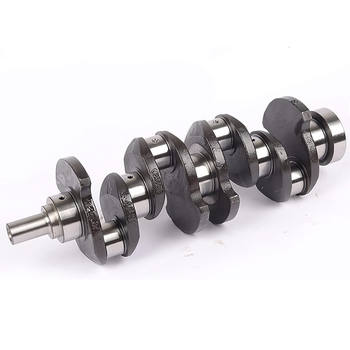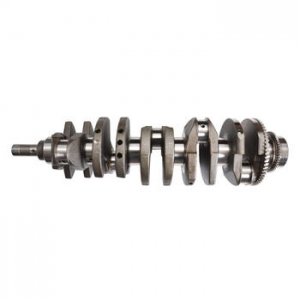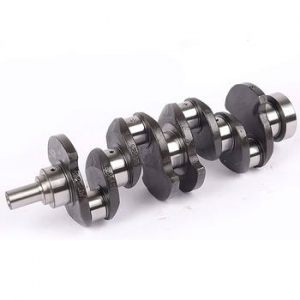Introduction
Have you ever heard an odd knocking sound coming from your engine and wondered what it could be? As it turns out, one possible culprit is crankshaft wear. In my experience, many engine owners are unaware of the hidden signs that indicate this issue – which, if left unaddressed, can lead to serious damage and costly repairs.
What is Crankshaft Wear?
The crankshaft is a crucial component of your engine, converting the linear motion of the pistons into rotational motion that ultimately powers your vehicle. Over time, however, the crankshaft can become worn due to factors like improper lubrication, metal fatigue, or simply high mileage. This wear can manifest in several ways, some more obvious than others.
Symptom 1: Engine Knocking or Tapping
One of the most common signs of crankshaft wear is an unusual knocking or tapping sound coming from the engine. This noise occurs when the worn crankshaft bearings fail to provide adequate support, causing the crankshaft to rattle around within the engine block. In some cases, this sound may be intermittent or only noticeable when the engine is cold.
Symptom 2: Vibrations
Another telltale sign of crankshaft wear is excessive vibration, particularly at idle or low speeds. As the crankshaft becomes worn, it may no longer rotate smoothly, leading to vibrations that can be felt throughout the vehicle. These vibrations can also cause other components, such as the transmission or drivetrain, to wear prematurely.
Symptom 3: Poor Engine Performance
As crankshaft wear progresses, it can lead to a noticeable decrease in engine performance. This may manifest as a loss of power, poor acceleration, or difficulty starting the engine. In some cases, the engine may even stall or misfire due to the inability of the worn crankshaft to maintain proper timing.
Symptom 4: Oil Leaks and Low Oil Pressure
Worn crankshaft bearings can allow engine oil to seep past them, leading to oil leaks around the engine's base or in the oil pan. Additionally, the reduced ability of the bearings to maintain proper clearance can result in low oil pressure, which can further exacerbate crankshaft wear and potentially cause damage to other engine components.
Prevention and Repair
To prevent crankshaft wear, it's essential to keep up with regular engine maintenance, including changing the oil and filter at recommended intervals. Using high-quality motor oil and paying attention to any changes in your vehicle's performance can also help catch potential issues before they become more serious.
Conclusion
In conclusion, being aware of the hidden signs of crankshaft wear is crucial for any engine owner. By keeping an ear out for unusual noises, paying attention to vibrations, and staying on top of routine maintenance, you can help protect your engine from costly repairs and keep it running smoothly for years to come.
So, the next time you're driving and hear that mysterious knock or feel an unexpected vibration, remember: it might just be your crankshaft trying to tell you something.




